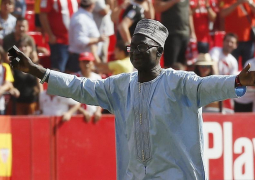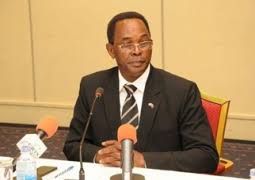
The Political landscape in The Gambia has assumed changing faces in recent times.
It has been said that in politics, there are no permanent friends, no permanent enemies but only permanent interest. Hence political cross carpeting is nothing new in the country. Usually those who jump ship from one party to another do so as an exercise of democracy and political opportunism as well. We had seen this happen in the 2021 race to the State House and in this year’s political discourse.
In my observations, two major political parties are in the race to political consolidation with one seemingly getting the upper hand perhaps, due to its incumbency influence. Looking further at the political dynamics, we might as well be heading to a battle between the majority party against the influence of the incumbent party in the 2026 elections.
However, since the politics of transactional relationships have superseded the politics of sustained relationships in today’s political equation in The Gambia, we might as well see another emergence of alliances (called coalition in Gambia) of other political parties in the race to State House in 2026 elections. The political danger or miscalculation in respect of these developments in the political scene is that voter confidence in either party could erode due to lack of trust in political flip-flopping of politicians, betrayals and internal power struggles, anger against executive decisions and threats of splits from the Party.
Another danger which causes the fading of African political parties is the heavy reliance on the personality of the leader and gradually the leader becomes a demigod or dictator. As a consequence, the Party is synonymous to the leader and once he is no longer in power, the Party becomes disintegrated and irrelevant.
Experience has also taught us that in African politics, usually those who start the struggle and hard work with the leader, end up being booted out for new elements, some of whom were known to have been opposed to the leader. Political expediency is normally the reason for such behaviors by the Leadership.
Political Consolidation, if conducted properly, could yield dividends for the Party and its leadership. However, there are no guarantees in the politics of transactional relationships for continued loyalty, support, dedication to the cause of the party and belief in its leadership.
In African politics, it is not strange to see political charlatans jumping from one party to another or even joining independent potential leaders in order to secure limelight in the power equation. In the process, whoever is considered as a political asset to the status quo will come on board the corridors of power.
Together the new and the old political figures are expected to back the agenda of the executive. It is good for political consolidation but could also lead to internal rivalry and struggles for prominence in the party and in government. The fragility of the democratic system takes place in such a situation.
Political disposition and activism are difficult to manage / handle in Gambian politics. The politics of sustained relationships hardly survives in African politics. Therefore, no matter how chaotic it could be, the politics of transactional relationships is the confirmed trend in the political discourse.
Read Other Articles In Opinion
Corruption in The Gambia - A disease that needs urgent cure
May 21, 2020, 1:15 PM

Barrow's Broken Trust: The Hollow Echo of Democracy in Gambia's Asset Heist
May 16, 2025, 12:52 PM



